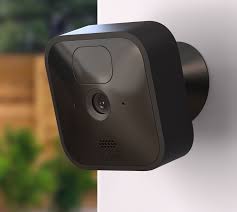Health
How Low-lying eyelids affect your everyday life
Low-lying eyelids or droopy eyelids are usually a product of aging. Other times, they come as a congenital malformation or result from disease or injury and may last forever, worsen over time, or be intermittent. No matter the culprit behind your low-lying eyelids, the effect on your life can be massive. Read on for some of these effects and why you might want to see an eye specialist.
1. They may result in amblyopia
Also known as astigmatism or lazy eye, amblyopia occurs when there is no proper stimulation of the nerve pathways linking the eyes to the brain. It typically affects one eye and may lead to poor vision. Usually, people with lazy eyes suffer poor depth perception and tend to tilt their heads backward in a frantic attempt to redress the balance. Consider checking with your PCP if your eye seems to wander outward or inward. A physical exam will help determine if the condition has something to do with ptosis.
2. They cause self-consciousness
Low-lying eyelids will change your facial appearance in one way or another. It may cause self-consciousness and affect your social life. You’re also likely to be less productive at work or school. Most people with mild cases of low-lying eyelids will resort to wearing glasses, which is not a permanent solution. If your condition lowers your self-esteem, don’t hesitate to seek treatment. Your doctor may prescribe eye crutches as they prepare a long-term treatment plan.
3. They lead to headaches
Low-lying eyelids have been shown to cause tension-type headaches. The headache (TTH) is characterized by mild to moderate pain that often feels like a tight band around the head. Given the many causes of TTH, most people with low-lying eyelids fail to associate their condition with pain until they treat their drooping eyelids. A study by Olson and Putterman observed that a third of individuals with low-lying eyelids frequently felt fatigued or brow pain after reading or working in a down-gaze position for long. But after ptosis repair and blepharoplasty, most patients experienced significantly fewer tension-type headaches.
4. They cause neck and shoulder issues
If your condition causes you to frequently tip your head back to improve your view, neck and shoulder problems may eventually set in. The resultant pain and discomfort often lead to fatigue and may affect your concentration and lower your performance at work. If you are forced to seek treatment, it means facing another expense and taking costly breaks from work. You can avoid all these ripple effects by seeking a solution to your low-lying eyelids early on.
5. They lead to eye itchiness
While low-lying eyelids are generally not painful, they can cause your eyes to itch as they rest on a section of the eyeball that is not accustomed to contact. People with itchy eyes tend to rub them a lot, and this increases their chances of infections or damage to their cornea and eyelids. Itchiness does not necessarily mean you have low-lying eyelids. However, if the two manifest simultaneously, it may translate to a correlation. Make a point of seeing an eye specialist if you reckon the itchiness in your eyes has something to do with your low-lying eyelids. All the rubbing and excessive blinking will only worsen your condition and possibly offset a detrimental vicious cycle.
6. They lower your ability to perform everyday tasks
Moderate to severe cases of low-lying eyelids can impact your ability to drive, walk down the stairs, watch TV, etc. These impacts are mostly negligible individually. However, collectively, they can slow you down and incredibly lower the quality of your life. If you can feel the effect of low-lying eyelids in more than one area of your life, there is a chance the overall bearing is worse than it appears. Your doctor may deem your condition temporary, in which case you can choose to shoulder it without treatment. But if it’s permanent, long-term, or simply too impactful, it would be wise to treat your low-lying eyelids.
Conclusion
Most people ignore and force to live with untreated low-lying eyelids because the effects build up slowly. You don’t want to wait too long before seeking treatment. As soon as you notice signs of droopiness, check with your doctor for a test. Early treatment will save you a fortune and potentially help detect and halt underlying issues in their tracks.


















